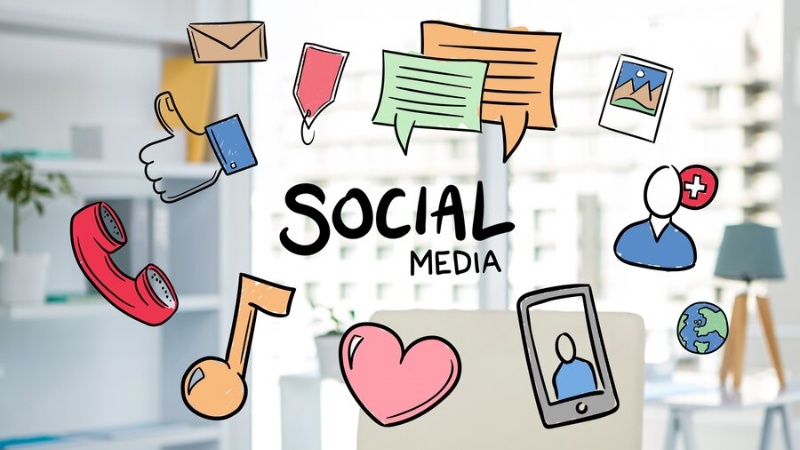
Social media marketing is one of the fastest-evolving verticals, and 2025 will surely witness a complete overlap between artificial intelligence and organic social media strategies. Morethanpanel.com use this amalgamation to maximize reach, increase engagement, and overall marketing efficiency.
However, like every other technological change, the integration of AI into organic strategies has its share of pros and cons. This article discusses some key pros and cons of harmonizing AI with an organic social media strategy in 2025.
Here are some pros of harmonizing AI and Organic Social Media Strategies:
AI-powered tools like Jasper and Copy.ai will help marketers create high-quality content much faster than ever. From suggesting captions themselves to creating full-length blog posts, AI can reduce your time to create content significantly. This frees the brand to spend more time on strategy and creativity rather than overspending time crafting posts manually.
AI can analyze millions of pieces of data to identify audience segments, preferences, and behaviors. This helps brands create very focused content to appeal to the specific demographics that they target. Better organic strategies with AI-driven insights make sure content reaches the right audience at the right time.
AI-powered tools like Hootsuite and Buffer have changed the game for social media scheduling. This allows businesses to keep their feeds up consistently, without having to intervene manually, by automatically publishing posts at times of peak engagement. This approach will complement organic strategies by ensuring content is shared at optimal times for maximum visibility.
AI also extends the data analytics capabilities of organizations to deepen insights into campaign performance and effectiveness in real time. Sprout Social and HubSpot enable insight into things like engagement rates and click-through rates to understand audience interaction. This helps to further refine an organic strategy for better effectiveness.
More so, chatbots and AI-driven messaging tools have made customer service easier on social media. This is where automated responses to frequently asked questions from brands are effective immediately, whereas organic strategies cultivate deeper connections and brand loyalty.
By automating repetitive tasks and content creation, businesses can save on labor costs and portion resources more effectively. This cost efficiency will give way to more room in budgets for creative campaigns and partnerships with influencers-which are integral parts of organic strategies.
AI can track emerging trends across platforms and suggest ideas for content creation on what is going viral at that particular moment. This helps the brand stay relevant, all while staying true to its organic approach to storytelling.
Learn how to grow your business with these 10 effective social media marketing strategies
Here are the cons of Harmonizing AI and Organic Social Media Strategies:
On one side, AI content does save time, but it could also be rather impersonal at the same time. Audiences just love authenticity, and overdependence on AI does face a lot of disconnections between the brands and their respective audiences.
Too much automation can lead to a brand being robotic in its presence whereby interactions become mechanical and not genuine. Organic social media strategies rely heavily on real engagement, which is compromised if AI tools take over complete interaction.
In the case of collection for personalized content, this AI raises some serious privacy concerns. Users of late are generally becoming aware of what happens with their data, and over-targeting may result in a negative view of a brand.
AI-driven tools are based on algorithms that change quite frequently. Social media platforms continually update their algorithms, which could affect the effectiveness of AI-powered strategies. This can be unpredictable and may interfere with organic content reach and performance.
While AI can be cost-effective in the long run, most of the premium tools and software one needs to invest in are quite costly. Small businesses might find this beyond their reach, and that could mean a gap between large corporations and smaller brands in terms of marketing capabilities.
AI tools are very good at data-driven content but lack the finesse of creative storytelling. Most organic strategies involve emotional storytelling, personal anecdotes, and unique brand voices, which AI tools find quite hard to emulate.
The use of AI in content generation does raise ethical concerns with regard to originality and intellectual property. There have been several instances where AI-generated content looked a lot like some existing work, thereby accusing one of plagiarism.
The following best practices will help maximize the benefits while mitigating the challenges.
Harmonizing AI and organic social media strategies comes with a great deal of advantages, such as enhancement in content creation, superior targeting of audiences, and cost savings. Challenges include authenticity concerns, over-automation, and privacy risks. In balancing AI efficiency with organic strategy genuineness, businesses like morethanpanel.com will remain competitive in 2025. A thoughtful, balanced approach will help brands maximize their reach, engagement, and long-term success in the dynamic world of social media marketing.